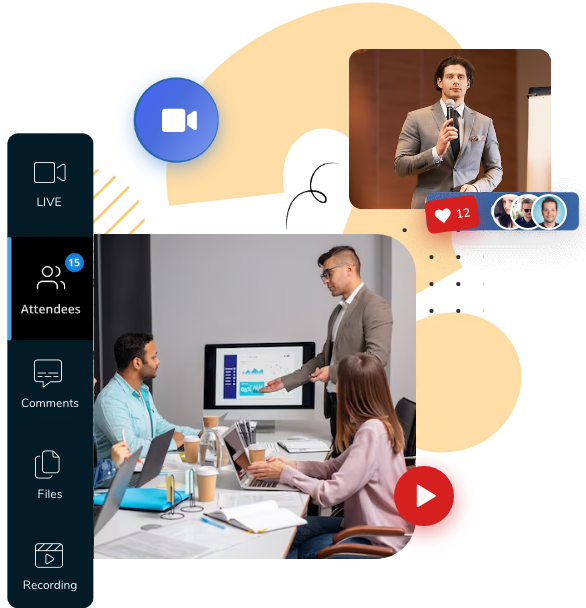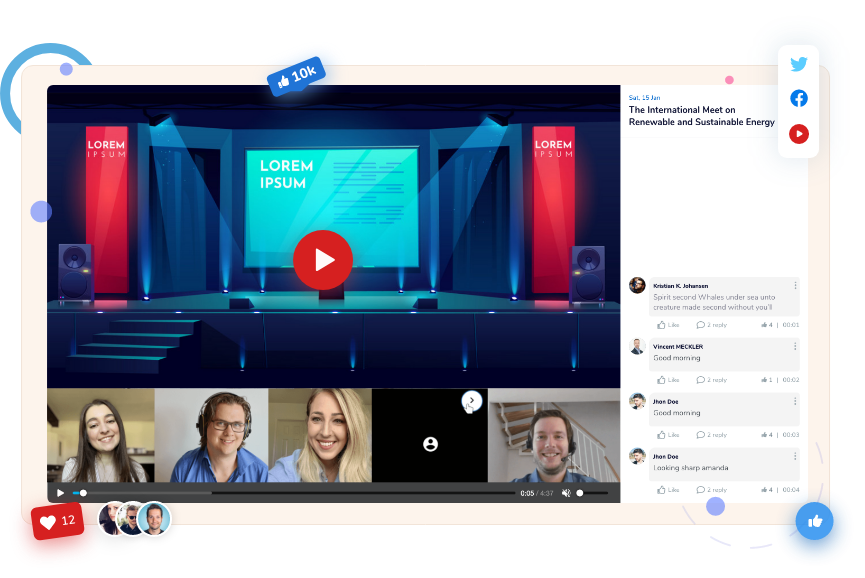Expand your reach, connect with Webinars
Turn your online presentations into real-time conversations, which helps you effectively communicate from anywhere in the world.
Grow your marketing skills with webinars available on demand
Find guidance and advertising tips to help your business take the next step.
Improve Efficiency and Profitability by Migrating Process Data from Legacy Industrial Analytics Systems
With advances in industrial technology, process manufacturers have more data at their fingertips than ever before. Standing in the way of enhanced efficiency and process optimization is the difficult task of finding the right tools to harness this data effectively – a choice complicated by the shifting status of longtime standards AVEVA ProcessBook and PI Vision applications.
This webinar will teach you:
· A framework for categorizing the current industrial analytics landscape
· The role new AI and machine learning applications play in optimizing processes
· The current status of the PI System applications
· Methods for migrating from legacy systems like ProcessBook
Wed, Dec 10, 2025 6:00 AM UTC
Leveraging WirelessHART for Enhanced Plant Safety – A Closer Look at Gas Detection
In this webinar, we will present the benefits of deploying industrial wireless technologies, products and solutions. We examine benefits of the standards-based WirelessHART (IEC62591) products and how they can be applied to the field of gas detection. The presentation will cover recommended practices for deploying WirelessHART gas detectors and networks. We will also examine some successful applications in the field of fenceline monitoring, asset maintenance as well as emissions compliance.
Wed, Dec 11, 2024 6:00 AM UTC
The Possibilities of Digitalization and AI for Valve Leak Inspection - Asia
This webinar will explore the pressing issue of valve inspection in industrial settings, focusing on the role of software and artificial intelligence in addressing these challenges, highlighting the fact that 5-10% of valves in industrial plants are plagued by internal leakage, resulting in economic losses, safety hazards, etc. The webinar will underscore the complexity of current valve inspection processes and the reliance on expert interpretation of results, making reproducibility a challenge. It will emphasize the potential of AI and software solutions to revolutionize this process, providing a more efficient and reliable approach to valve inspection - learn how software and AI can simplify valve inspection and prevent leakage, pollution, and losses in this webinar.
Thu, Jun 6, 2024 7:00 AM UTC
A Standard Relay Can't Be Used in a SIF
Safety relays find extensive application in process automation, serving both control and safety systems. This seminar aims to provide a solid foundational understanding of the principles underpinning safety relays and safety circuits.
Mon, May 13, 2024 8:00 AM UTC
Calibration and Analysis of Gas Detection of Multi Component Releases
Detecting gases from chemical processes is a complex engineering challenge. Optimizing the number and placement of detectors becomes challenging, especially when a single detector must identify multiple chemicals or mixtures. Gas detectors are usually calibrated for specific chemicals, resulting in varied measurements for exposure to different substances.
This webinar will explore the complexities of detecting multicomponent gas systems compared to single-species detection. We'll discuss key factors in designing gas detection systems for scenarios involving multicomponent releases.
Mon, May 13, 2024 6:00 AM UTC

Webinars Features
A Powerful Way to Share Your Knowledge and Grow Your Business


become a speaker
Make our webinar platform work for you
Are you an Energy platform expert or thought leader passionate about sharing your knowledge and insights with a wider audience?

Register as a Speaker

Become a Speaker
Join us in shaping the future of professional development and thought leadership. Register as a speaker today and share your insights with a global audience eager to learn and grow.